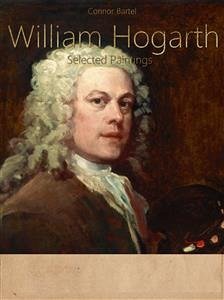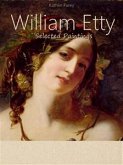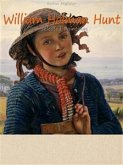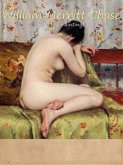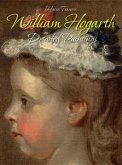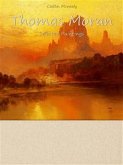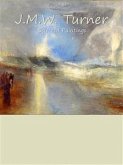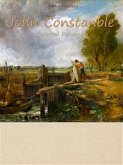William Hogarth (1697 – 1764) was an English painter, printmaker, pictorial satirist, social critic, and editorial cartoonist. His work ranged from realistic portraiture to comic strip-like series of pictures called "modern moral subjects", perhaps best known being his moral series A Harlot's Progress, A Rake's Progress and Marriage A-la-Mode. Knowledge of his work is so pervasive that satirical political illustrations in this style are often referred to as "Hogarthian".Hogarth was born in London into a poor middle-class family. In his youth he took up an apprenticeship where he specialized in engraving. His father underwent periods of mixed fortune, and was at one time imprisoned in lieu of outstanding debts; an event that is thought to have informed William's paintings and prints with a hard edge. His work was influenced by French and Italian painting and engraving.Hogarth's works are mostly satirical caricatures, sometimes bawdily sexual, mostly of the first rank of realistic portraiture. They became widely popular and mass-produced via prints in his lifetime, and he was by far the most significant English artist of his generation.Hogarth was also a popular portrait painter. In 1745 he painted actor David Garrick as Richard III, in 1746 a sketch of Simon Fraser, 11th Lord Lovat, afterwards beheaded on Tower Hill, had an exceptional success. In 1740 he created a truthful, vivid full-length portrait of his friend, the philanthropic Captain Coram for the Thomas Coram Foundation for Children, and his unfinished oil sketch of a young fish-woman, entitled The Shrimp Girl may be called masterpieces of British painting. There are also portraits of his wife and his two sisters, and of many other people, among them Bishop Hoadly and Bishop Herring.For a long period of his life, Hogarth tried to achieve the status of history painter, but had no great success in this field.Hogarth wrote and published his ideas of artistic design in his book The Analysis of Beauty (1753). In it, he professes to define the principles of beauty and grace which he, a real child of Rococo, saw realized in serpentine lines (the Line of Beauty).
Bitte wählen Sie Ihr Anliegen aus.
Rechnungen
Retourenschein anfordern
Bestellstatus
Storno

